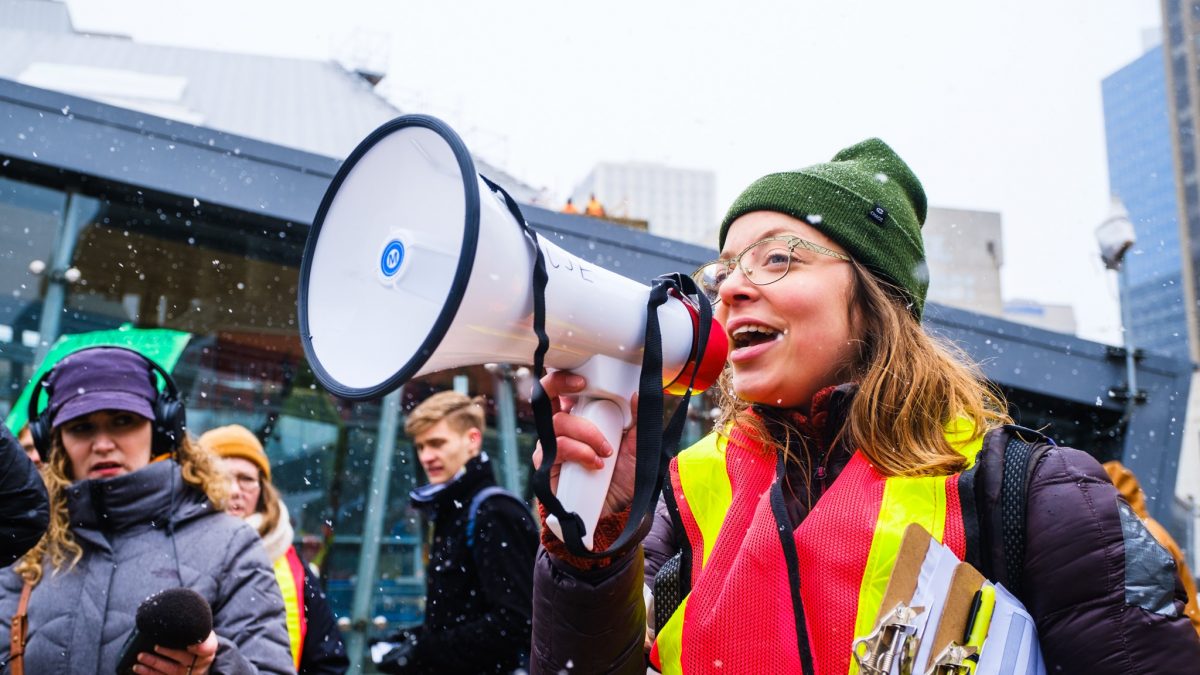On the last morning of February, the United Nations’ Intergovernmental Panel on Climate Change dropped another devastating report. Buried in the news amid war in Ukraine, the document details “an atlas of human suffering and a damning indictment of failed climate leadership,” and carries an ominous warning that climate change could soon outpace humanity’s ability to adapt.
Hours later, six climate activists sit silently in separate rooms while gathered over Zoom. Gabrielle Gelderman, the Edmonton-based leader of the Climate Grief Circle, begins a guided meditation. Participants breathe deeply. For a moment, there is peace.
As 12 eyelids slowly lift in front of laptop webcams, Gelderman opens the circle for discussion, declaring all emotions are welcome and matters in the call will be kept confidential.
"People don’t want to burden their loved ones with their fear and their despair. So, to be in a space with other people who understand, it helps people understand their own grief a lot more."
Climate grief, also called eco-grief, is a psychological response to loss caused by climate change. It’s a growing phenomenon, particularly felt by children and young adults, and is being studied around the world as people find ways to cope in their own communities.
“People don’t want to burden their loved ones with their fear and their despair. So, to be in a space with other people who understand, it helps people understand their own grief a lot more,” Gelderman says.
The 31-year-old launched the climate grief circles in January. She typically leads three to 10 people at a time. Half of the sessions are specifically for climate activists, while the rest are open for concerned citizens to safely grieve a future marked by climate catastrophe and stark economic prospects.
Gelderman intimately understands the activist’s struggle, having cofounded Climate Justice Edmonton in 2018. But her dedication to the environment led to what she describes as an intense period of climate despair, burnout, anxiety and depression.
“We came up against dead end after dead end,” she says. “I got to a point where I just lost a lot of faith, I think, in our ability to make the kind of change I initially thought was possible.”
She was left with a burning question: How does one move forward when the future, in so many ways, feels lost?
Gelderman found the answer in nature. Working as a seasonal interpreter in Northern Alberta’s Cold Lake Provincial Park, away from her peers and the city noise, gave her the space to work through her own climate grief.
“The reason I was actually able to feel some of those deeper emotions was because I felt really held and supported by the literal land I was living on,” she says.
This connection helped Gelderman understand the limitations of political and scientific models for understanding the world. Searching for something deeper, her grieving process became a spiritual crisis, ultimately leading to a place of faith. Gelderman got a Master of Theological Studies degree and studied Clinical Pastoral Education, devoting herself to counselling in the principles of collective liberation and the “contemplative Christian tradition.”
She is now a hospital chaplain by day, where she works with families and palliative-care patients grieving some of the most intense and painful experiences they will ever face.
While climate grief can be comparatively more anticipatory and ambiguous, it is also intricately woven into all areas of people’s lives. Gelderman’s aim is not necessarily to foster optimism about the potential for systemic change, but rather to “re-enchant” the world for those who come to her, by helping them focus less on political outcomes and more on the things that make them feel good — perhaps spending time in nature, making music or dancing — so they can feel a sense of deep, committed belonging in the world.
Back in the circle, participants share conflicted feelings about continuing to do their day jobs while the world is in crisis, about feeling guilty for sounding too doom-and-gloom in conversations with their peers, and about grappling with the decision to have a child when the future looks so bleak. One woman mentions how failure in climate activism can feel like letting the whole world down.
Gelderman gently guides the discussion, asking thoughtful questions and welcoming pauses. She ends the hour-and-a-half-long session with a writing exercise, a reflection on the Ellen Bass poem, “The World Has Need of You.” The title is fitting — a sentiment that is so important, but, oftentimes, so difficult to believe.
“They feel grief because they have a deep love for the world. So, I think, for me, it’s important to help people identify where they feel that love,” Gelderman says. “You cultivate those feelings of belonging and enchantment, so that you can just continue to live in a a world that’s really broken and really painful.”
Savvy AF. Blunt AF. Edmonton AF.

